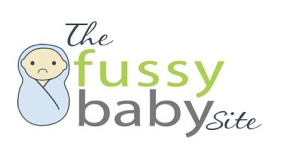Treatments for Colic
Current Medical Treatments for ‘Colic’
I hope at this point, you are not holding out hope for the ‘old school’ treatments for colic that are still being recommended (sometimes even by doctors). The research does not support these treatments.
We have all heard anecdotal evidence of treatments like gripe water and gas drops (eg. Mylicon) working. It has been suggested that often when these treatments do work, it is because it corresponds with the predictable decrease in crying babies experiences in their 4th month, not because the treatment is actually working.
Perhaps you have tried one (or all) of these treatments, and have found they worked at times. This is entirely possible. Many are designed to help relieve pain caused by trapped gas bubbles. If your baby’s crying is indeed the result of gas, these products might work. As is discussed elsewhere on the site however, research has shown that gas is generally not the cause of infant fussiness.
I believe it is enough here to say that these treatments have been sufficiently debunked. But what about two of the most popular current treatments for ‘colic’: Pediatric Chiropractic and Probiotics?
Pediatric Chiropractic
One of the current popular treatments for colic and infant fussiness is gentle chiropractic care. The theory goes that during the birth process, particularly during a traumatic vaginal delivery (i.e. where forceps are used), or during a c-section, the spine becomes misaligned and can result in digestive issues.
Proponents of pediatric chiropractic believe that gently realigning the spine can aid in digestion, resulting in less spitting up, and just a generally easier time digesting food. The theory goes that aiding the digestive system will decrease colicky behaviour and crying.
In running The Fussy Baby Site for several years, I have spoken with more than a few parents who swear by pediatric chiropractic. I have heard stories of fussy babies instantly relaxing after their treatment, or even falling asleep spontaneously during the treatment. Sometimes parents say that while they didn’t notice a decrease in their baby’s crying immediately, after several sessions they started to see improvement.
I can’t say whether the timing of these treatments corresponded with the natural period of decreased crying or not, or whether the placebo effect was playing a role, or whether the treatment really did work for those babies.
Infant Probiotics
Another very popular treatment these days is probiotic drops. Research released in 2006 looked at the intestinal flora (bacteria) of both colicky and non-colicky infants. The research found that the colicky infants tended to have less of a type of bacteria called Lactobacillus (athough, it is not known whether this is the cause of colic, the result of another condition that causes colic, or simply a consequence of colic).
Further research released in early 2007 looked at a possible treatment for colic, based on the assumption that decreased Lactobacillus was causing the colic. The study compared the use of L. Reuteri Probtiocs with Simethicone (gas drops). The study showed improvement in 95% of babies treated with L. Reuteri probiotics, as compared with the improvement seen in only 7% of babies treated with gas drops.
Other Posts You May Like
Top 10 Natural Remedies for Colicky Babies
Sierra’s Story: Colic and Chiropractic
A Conversation on Perinatal Imprinting
Ann’s Story: Not What I Expected
Trusting Your Parental Gut
Ask the Chiropractor
